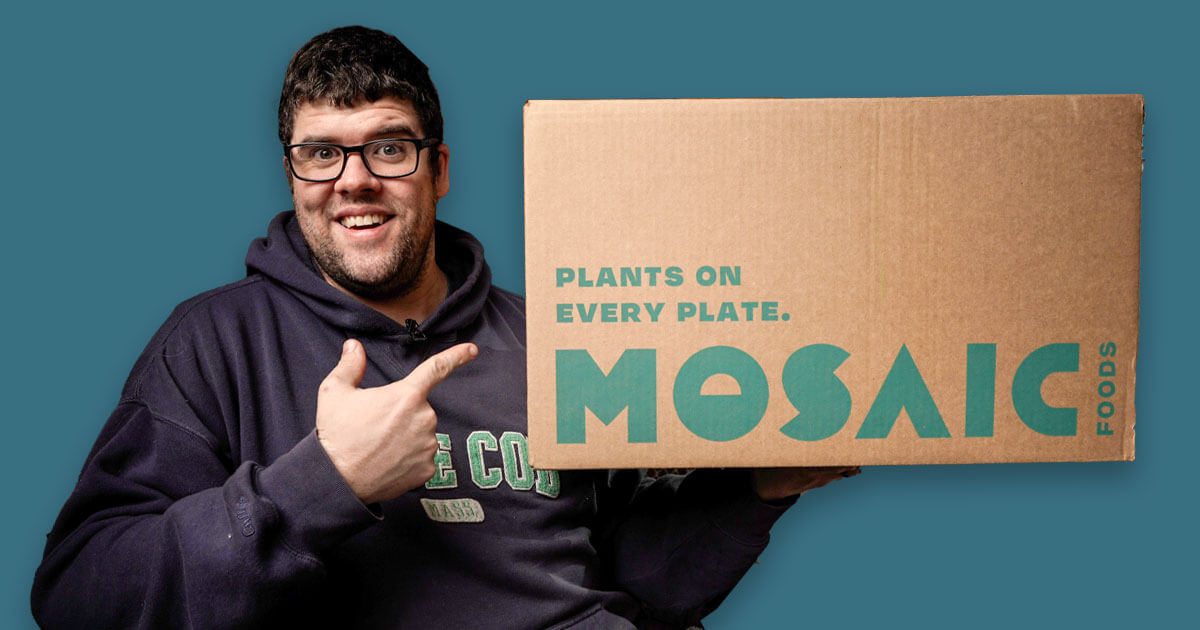Welcome to Timbo’s Food Box, where we explore the latest developments in the food industry and share our thoughts on how they impact you. Today, we’re diving into Florida’s recent ban on lab-grown meat. This blog post will discuss the ban, the controversy surrounding lab-grown meat, and what it all means for the future of our food.
What is Lab-Grown Meat?
Lab-grown meat, also known as cultured or cultivated meat, is a meat alternative made from animal stem cells. According to the Good Food Institute, it uses the same cell types that can be arranged in a similar structure as animal tissues, replicating the sensory and nutritional profiles of conventional meat. In simpler terms, it’s meat produced in a lab setting using animal cells instead of traditional animal farming.
How is Lab-Grown Meat Made?
- Cell Extraction: Scientists start by extracting stem cells from an animal. These cells have the potential to grow into different types of muscle tissue.
- Cell Culturing: The cells are placed in a nutrient-rich medium containing amino acids and carbohydrates. This medium stimulates the cells to multiply and grow, forming muscle tissue.
- Tissue Formation: As the muscle cells multiply, they form fibers and eventually resemble the structure of ground meat.
- Harvesting: Once the tissue is fully grown, it’s harvested and processed into the final product, whether that’s a burger patty or a chicken nugget.
Reviews of lab-grown meat have varied, ranging from “tender and chewy, like a well-cooked chicken thigh” to “it tastes like chicken but doesn’t necessarily feel like chicken.”
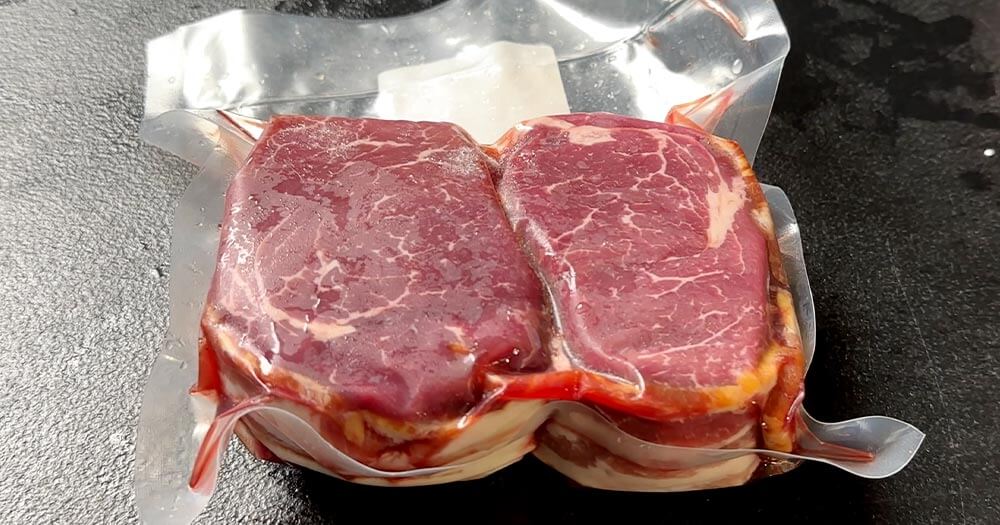
Florida’s Ban on Lab-Grown Meat
Florida recently became the first state to ban the manufacture and distribution of lab-grown meat. Governor Ron DeSantis signed the legislation, SB 1084, which aims to protect farmers and the “integrity of American agriculture.”
Why Did Gov. DeSantis Ban Lab-Grown Meat?
In a press conference, Gov. DeSantis explained his motivations for the ban:
- Support for Local Farmers: The ban aims to protect Florida’s local farmers and ranchers by preventing competition from lab-grown meat manufacturers.
- Preserving Agriculture: DeSantis emphasized the importance of investing in local agriculture and maintaining traditional farming practices.
- Resisting the “Global Elite”: DeSantis criticized international organizations like the World Economic Forum for advocating “fake meat” as part of a larger plan to combat climate change.
Key Provisions of SB 1084
- Modernizes Florida’s Right to Farm Act to protect reasonable agricultural activities from frivolous lawsuits.
- Ensures agri-tourism operators qualify for protection against property tax assessments when operating on agricultural lands.
- Simplifies steps for Florida farmers to receive sales tax exemptions for agricultural materials.
- Reestablishes funding for the Rural and Family Lands Protection Program in 2022 at $300 million, protecting over 36,000 acres of farmland.
- Invests more than $2.8 billion into Florida’s agricultural industry.
Industry Response to the Ban
The Good Food Institute, which promotes the lab-grown meat industry, expressed disappointment with the new law, stating, “In a state that purportedly prides itself on being a land of freedom and individual liberty, its government is now telling consumers what meat they can or cannot purchase.”
Carrie Kabat, Head of Global Communications for GOOD Meat, emphasized that the ban wouldn’t halt the progress of cultivated meat, asserting, “The law will not stop the development of cultivated meat.”
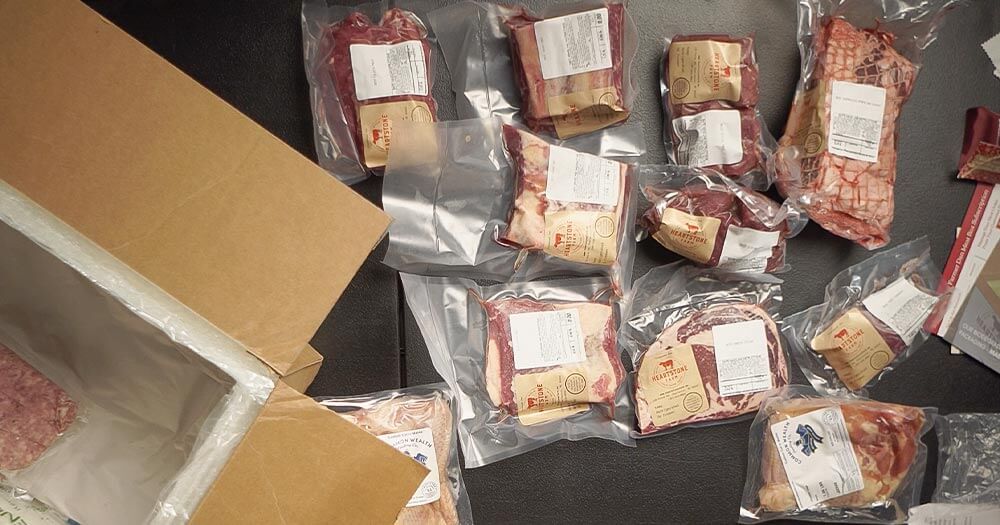
Other States Considering Bans
Florida isn’t the only state weighing restrictions on lab-grown meat:
- Alabama: The state’s House passed a bill prohibiting the manufacture, sale, or distribution of food products made from cultured animal cells. However, an amendment requires it to return to the Senate before going to the governor for approval.
- Arizona: Two bills passed the House — one banning lab-grown meat and another enforcing tougher meat labeling — but neither made it through the Senate.
- Tennessee: A bill that would ban the sale of cultured meat and impose fines of up to $1 million wasn’t considered before the General Assembly session ended.
Why is Lab-Grown Meat So Controversial?
Despite the FDA declaring lab-grown meat safe to eat in 2022 and the USDA granting approval in 2023, skepticism remains high. Here are some pros and cons:
Pros
- Environmental Impact: Cultivated meat production could reduce the carbon footprint by 92%, land use by 90%, and water use by 66% compared to conventional beef production, according to a study published in The International Journal of Life Cycle Assessment.
- Ethical Concerns: Cultured meat eliminates the need to slaughter animals, potentially offering a more humane way to produce meat.
- Food Safety: Lab-grown meat reduces the risk of foodborne illnesses associated with traditional meat.
Cons
- Taste and Texture: Some critics claim that lab-grown meat doesn’t fully replicate the taste and texture of conventional meat, which could deter consumers.
- High Production Costs: The first lab-grown burger in 2013 cost nearly $400,000 to produce. While costs have decreased, critics argue it’s still too expensive for the average consumer.
- Public Health Concerns: Some worry that long-term health effects of lab-grown meat are still unknown.
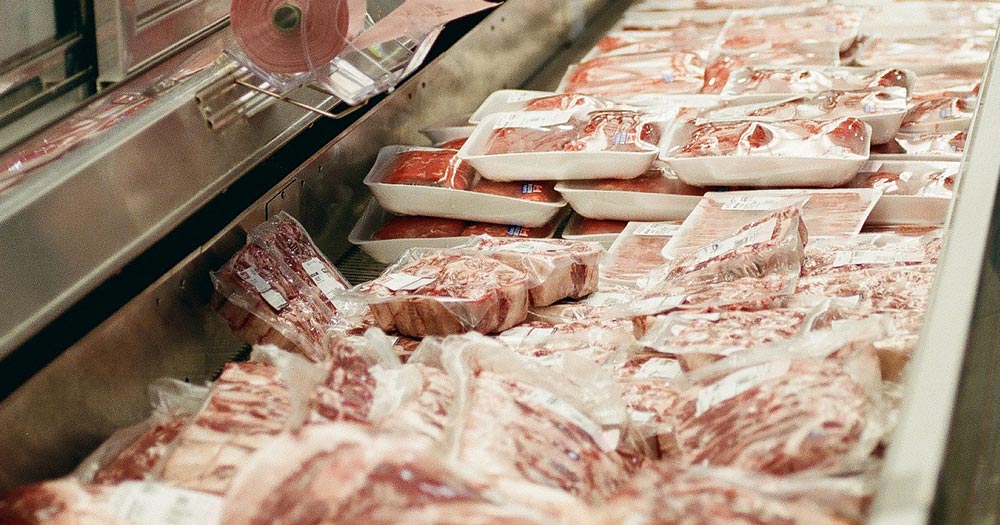
Is Lab-Grown Meat Available in the U.S.?
Currently, lab-grown meat isn’t available in U.S. grocery stores. While the USDA cleared Upside Foods and GOOD Meat to manufacture and sell cultivated chicken products in 2023, production volumes remain low.
Elliot Swartz, principal scientist for cultivated meat at the Good Food Institute, noted, “The production volumes of these two products can only currently provide for limited offerings in select restaurants.”
Why I Don’t Support Farm-Raised Meat or Lab-Grown Meat
I believe in the importance of consuming natural, ethically sourced food. Lab-grown meat isn’t natural, and farm-raised meat often lacks the quality and ethical standards that consumers should expect. I only buy grass-fed beef and will never buy lab-grown meat. Our bodies are natural, and our food should be too.
Instead, I recommend purchasing your meat from real farms that prioritize ethical, sustainable practices. Here are my top picks for grass-fed, high-quality meat:
Top Picks
- ButcherBox: Offers grass-fed beef, free-range organic chicken, and heritage breed pork, all sourced from trusted farmers.
- Crowd Cow: Connects consumers with independent farmers and ranchers to provide sustainable, grass-fed beef.
- Grass Rooters Farmers Co-Op: A cooperative of small farms offering grass-fed and pasture-raised meats.
- US Wellness Meats: Specializes in 100% grass-fed, sustainably raised meats and provides a variety of cuts.
- REP Provisions: Focuses on regenerative agriculture practices to deliver high-quality, grass-fed beef.
- Porter Road: Offers pasture-raised meat, including beef, pork, lamb, and chicken, sourced from small family farms.
Other Farms We Love
- Heartstone Farm: A Maine-based farm that provides pasture-raised, grass-fed beef.
- Walden Local Meat Co: Specializes in sustainably raised meats sourced from local farms in New England.
- White Oak Pastures: A family-owned farm offering regenerative, grass-fed beef, lamb, and poultry.
- Lilac Hedge Farm: Offers pasture-raised meats and focuses on animal welfare and sustainable practices.
Affordable Options for Ready-to-Eat Meats
- Just Meats: Offers pre-cooked, high-quality meats, perfect for a quick, healthy meal.
- Carnivore Snax: Provides convenient, ready-to-eat, air-dried meats for a protein-packed snack.
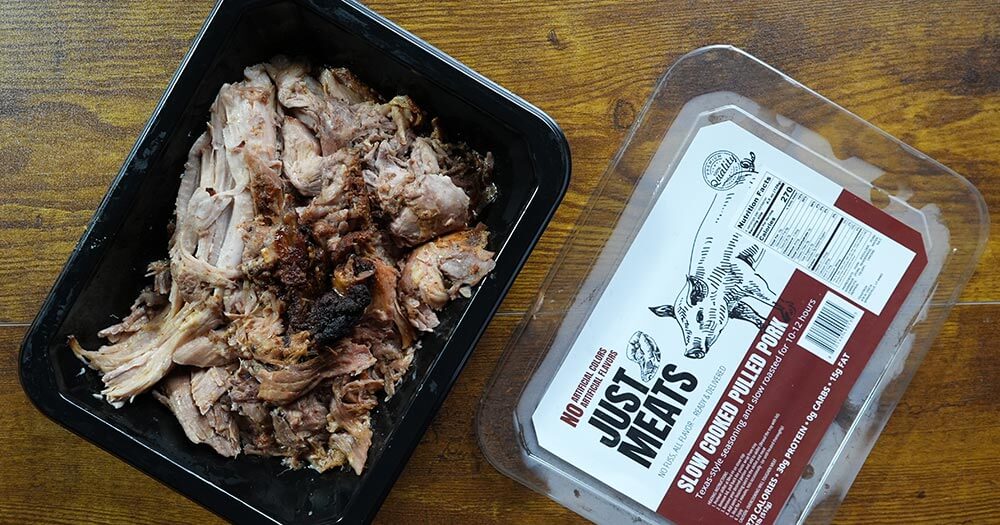
My Take on Lab-Grown Meat and Florida’s Ban
As someone who regularly reviews and explores the food industry, I am not a believer in lab-grown meat. I support local farmers who raise wild livestock, ensuring that our food is as natural and ethically sourced as possible.
The Concerns Surrounding Lab-Grown Meat
Lab-grown meat doesn’t align with my principles of supporting local, sustainable farming. Despite claims of environmental and ethical benefits, lab-grown meat remains an artificial product that can’t replicate the unique qualities of farm-raised meats. There are several significant concerns that shouldn’t be overlooked:
- Taste and Texture: Critics have pointed out that lab-grown meat lacks the complexity and distinct flavor found in naturally raised livestock.
- High Production Costs: Despite advancements, lab-grown meat remains expensive and inaccessible for most consumers.
- Health and Safety Issues: The long-term health implications of consuming lab-grown meat are still uncertain. There are concerns about what types of cancers lab-grown meat might cause due to the rapid cell growth involved in its production.
- Historical Perspective: Before us, cavemen primarily ate meat and vegetables and didn’t have issues like obesity or modern health problems. Today, the market is flooded with processed foods, which have contributed to a spike in health issues and obesity.
Florida’s Ban: Protecting Real Farms and Real Food
Florida’s ban on lab-grown meat is a step in the right direction to safeguard the integrity of American agriculture. By prohibiting the manufacture and distribution of cultivated meat, Florida is prioritizing local farmers and ranchers. Instead of relying on lab-grown alternatives, it’s crucial to invest in sustainable, ethical farming practices that support local economies.
A Note on Massachusetts
I hope Massachusetts follows Florida’s lead and also bans lab-grown meat. It’s not natural, and we should be consuming real, natural foods instead of fake alternatives. Supporting local farmers who raise wild livestock ensures that we maintain the integrity of our food industry.
Conclusion
Florida’s ban on lab-grown meat raises important questions about the future of our food industry. While some argue for potential environmental and ethical benefits, the concerns surrounding lab-grown meat cannot be ignored. It’s essential to invest in and support sustainable, ethical farming practices rather than relying on lab-grown alternatives.
At Timbo’s Food Box, we’ll keep a close eye on how this ban impacts Florida’s agriculture and food landscape. Stay tuned for more updates as we continue our journey into the ever-changing world of food!
Frequently Asked Questions About Lab-Grown Meat
What is lab-grown meat, and how is it made?
Lab-grown meat, also known as cultured or cultivated meat, is an alternative to conventional meat made from animal stem cells. It’s created using a multi-step process:
• Cell Extraction: Extracting stem cells from an animal.
• Cell Culturing: Placing the cells in a nutrient-rich medium to stimulate growth.
Tissue Formation: The cells multiply and form muscle tissue resembling ground meat.
• Harvesting: Once fully grown, the tissue is harvested and processed into meat products like burgers or nuggets.
Is lab-grown meat safe to eat?
Yes, lab-grown meat is considered safe to eat. The FDA declared it safe in 2022, and the USDA granted approval for two companies, Upside Foods and GOOD Meat, to produce cultivated chicken products in 2023. However, it hasn’t been widely consumed yet, so long-term health effects remain unknown.
Does lab-grown meat taste like real meat?
Reviews vary on the taste of lab-grown meat. Some consumers say it closely resembles traditional meat in taste and texture, while others feel it’s not quite the same. For example, one reviewer described it as “tender and chewy, like a well-cooked chicken thigh,” whereas another found it “tastes like chicken but doesn’t necessarily feel like chicken.”
Is lab-grown meat available for purchase?
Lab-grown meat isn’t currently available in U.S. grocery stores. In 2023, the USDA approved Upside Foods and GOOD Meat to produce and sell cultivated chicken, but production volumes are limited. These products are only available in select restaurants.
How does lab-grown meat compare to plant-based meat substitutes like Impossible Burger?
Lab-grown meat differs from plant-based substitutes like Impossible Burger because it’s made from animal cells, while plant-based meats are created from plant proteins. Lab-grown meat is designed to replicate the taste and texture of conventional meat more closely, while plant-based alternatives aim to offer a similar experience using plant-derived ingredients.
How can I tell if my meat is lab-grown or farm-raised?
Identifying lab-grown meat versus farm-raised meat can be challenging, but there are a few key indicators. In the U.S., the USDA requires cultivated meat to be clearly labeled as “cell-cultivated” or “lab-grown,” so checking the packaging is the most reliable method. In terms of taste and flavor, reviewers describe lab-grown meat as tasting similar to conventional meat, but with subtle differences. It often lacks the distinct flavor variations associated with different cuts and types of farm-raised meats. Farm-raised meat, on the other hand, usually has a more pronounced and distinct flavor due to differences in diet, breed, and farming practices.
When it comes to texture, lab-grown meat typically has a consistent texture that resembles ground meat. However, some reviewers note that it may lack the complexity of texture found in whole cuts like steaks or chicken breasts. Farm-raised meat often has a natural muscle structure, providing a broader range of textures, from tender to chewy, depending on the cut and preparation. Overall, while labeling is the most reliable way to distinguish between lab-grown and farm-raised meat, subtle differences in flavor and texture can also provide clues.
Got thoughts on lab-grown meat? Let us know in the comments below or reach out to us directly on our social media channels. And don’t forget to subscribe to Timbo’s Food Box for the latest updates on food trends and reviews!




